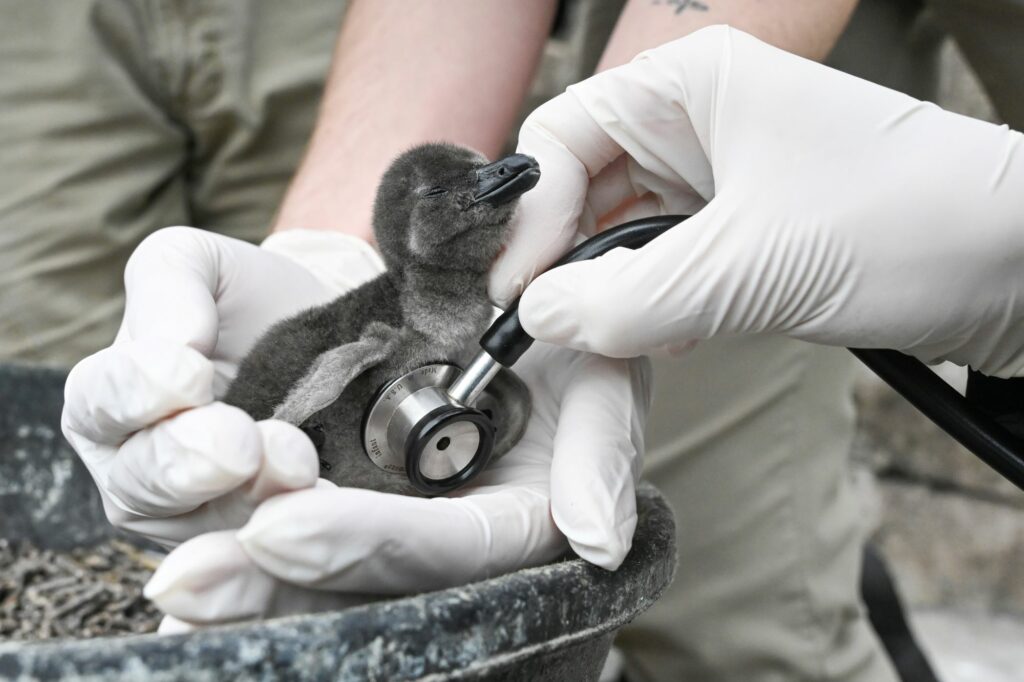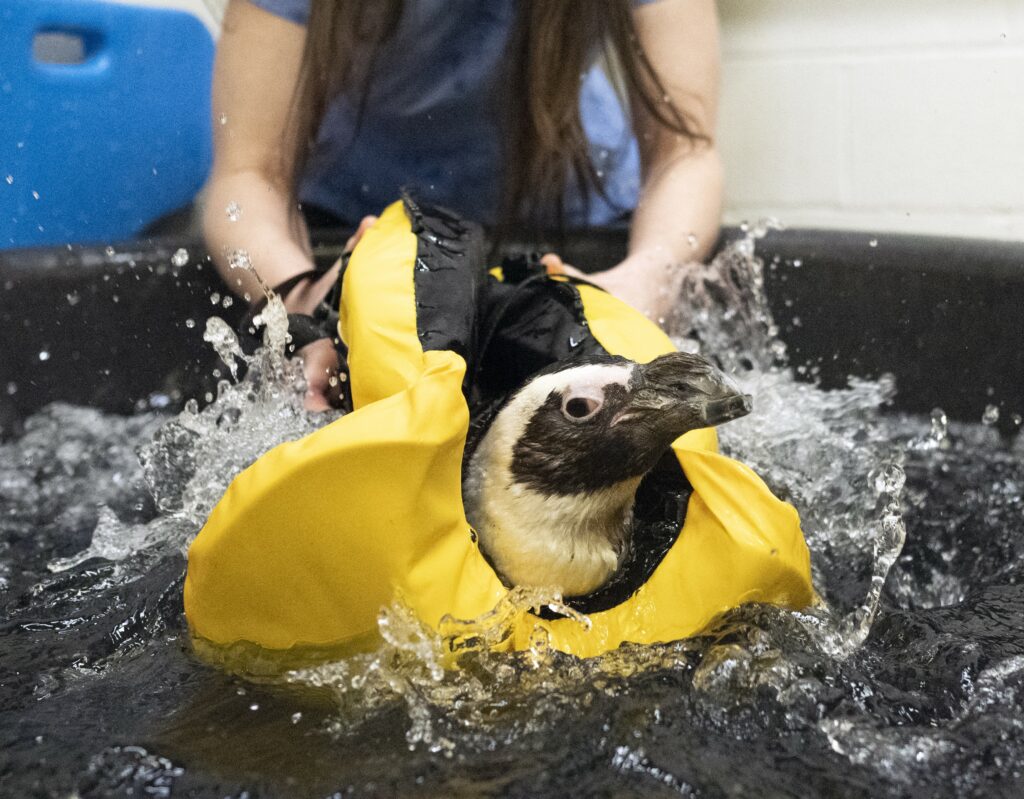From Early Days to Golden Years
On a visit to the National Aviary, you can see birds as huge as Andean Condors boasting 10-foot wingspans then watch tiny birds like Saipan White-eyes and Atlantic Canaries flit by. As you can imagine, caring for a condor is much different from caring for a canary! At the National Aviary, our experts are versed in innovative techniques to provide outstanding care for any bird, for any species, from the egg well into their golden years.

Pierogi the African Penguin (named by staff!) hatched as a healthy chick at the National Aviary in September 2022. During a routine neonatal health exam when he was just a few days old, Pierogi’s care team discovered he had a developmental eye condition. They brought in a human eye specialist who treats patients with special visual needs. This specialist, alongside our veterinary team, performed a full eye exam, modifying the techniques and tools used on humans for the unique features of a penguin patient. With this testing, our veterinary team saw his right eye and eyelid were not fully formed. Pierogi’s care team then developed ways to help him acclimate to visual changes, such as handfeeding him on the left side so he could easily see fish.
Learn more about Pierogi’s StoryThe National Aviary provides the highest quality care for all its birds, with extra care and attention to birds with special abilities, who then thrive and live active, happy lives here!
Birds are so different from other animals, and the experts at the National Aviary research thoroughly and get creative to meet each bird’s needs. Our community’s generosity and your donations help make this kind of uncommon care possible.
In a habitat behind the scenes, the National Aviary’s most senior African Penguin, Stanley (named for the Stanley Cup), is receiving care for a pinched nerve in his spine. Stanley is in his early 20s, also known as his “golden years”. Like people, birds can also experience aches, pains, and pinched nerves as they age.
Stanley’s condition temporarily left him with limited use of his legs. The veterinary team at the National Aviary rushed to make sure he was comfortable and healing, and to find solutions to try to get this much-loved penguin back on his feet and into the water again.
Stanley’s care team implemented the use of an infant life vest to aid in his physical therapy. Nestled safely in the vest, he can float and splash with the help of one of our veterinarians in a hydrotherapy tub. His physical therapy includes routines for his hips, knees, and feet, plus therapies to build up his core strength.

Perhaps most importantly, our team recognized that they were caring not only for Stanley’s physical needs but for his overall well-being. As a social species, African Penguins form deep pair bonds with their mates. When Stanley’s mate, Dottie, was recovering from a mass in her chest several years ago, Stanley remained by her side to support her as she healed. Now, Dottie returns the favor. Her visits with Stanley in the hospital are vital for his well-being and are every bit as important as the treatments and therapies he receives to help heal his body.
Whether it’s partnering with optometrists to peek into a penguin’s eye or testing floatation devices to help a senior penguin swim again, the National Aviary’s experts tirelessly pursue treatments to help birds thrive and live healthy lives from the moment they hatch through their golden years.
And, caring for these special birds is crucial for their survival: African Penguins may be functionally Extinct in the Wild by 2035.
The National Aviary is a leader in the Association of Zoos and Aquariums (AZA) Saving Animals From Extinction (SAFE) program for African Penguins, working with colleagues around the globe to help find solutions to meet the challenges facing African Penguins. We are also coordinating the Species Survival Plan® for African Penguins, ensuring the entire population of African Penguins remains healthy and stable for the long-term future.
This work – from the care we provide for each bird at the National Aviary every day, to our efforts to help save species from extinction – is possible because of people like you! Your gift to our spring campaign will support our work to provide uncompromising, innovative care for birds like Pierogi and Stanley and create a brighter future for their wild counterparts.
Donate Today